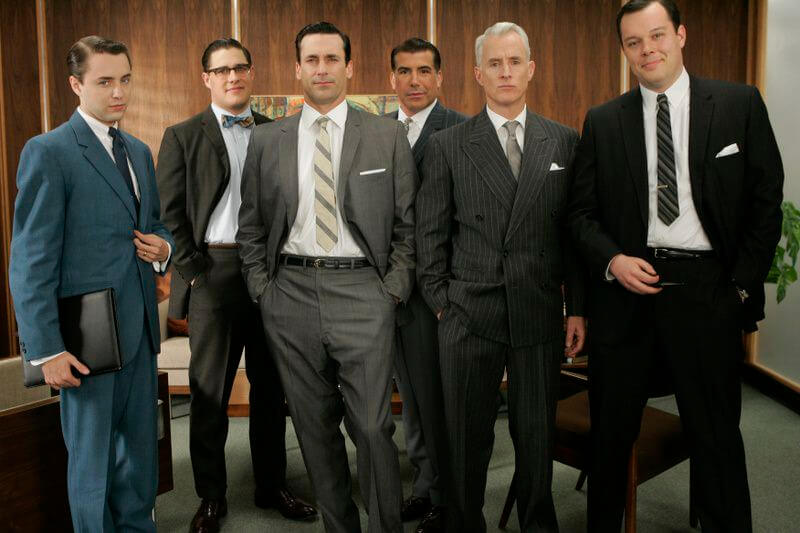Where Does the Entitlement Stem From?
A recent report by Women’s Aid, conducted in partnership with Core, sheds light on the troubling persistence of traditionalist views of manhood among Irish men. Despite decades of progress toward gender equality, two in five Irish men still hold traditionalist attitudes, while more than half agree or remain uncertain about statements such as “men who don’t dominate in relationships aren’t real men.” Such findings reveal a concerning trend that demands urgent attention, not only to address harmful mindsets but also to question the origins of male entitlement.
-
2 in 5 Irish Men: Still hold traditionalist attitudes
-
Men in their 20s are most likely to adhere to traditional masculine roles
The survey results highlight how entrenched the belief in power dynamics remains within the framework of traditional masculinity. Over half of men surveyed agreed or were unsure about the idea that “a man’s worth is measured by power and control over others,” while 46% believe that “real men shouldn’t have to care about women’s opinions or feelings.” These attitudes are not just reflective of personal views but are symptomatic of a deeply rooted societal issue that places power, dominance, and control at the heart of masculinity.
Historically, patriarchy has positioned men as primary decision-makers, breadwinners, and authority figures, while relegating women to subordinate roles. Though progress has been made in breaking down these roles, such beliefs persist because they are reinforced by cultural, familial, and media influences. They perpetuate the idea that men derive their value from exerting control, while women’s worth is tied to submission and appearance.
46% of men surveyed believe that “real men shouldn’t have to care about women’s opinions or feelings”
Why Are Young Men Falling Into This Trap?
One of the most alarming findings in the report is that younger men, particularly those in their 20s, are the most likely to adhere to traditional masculine roles. This counters the expectation that younger generations are inherently more progressive. It raises questions about the influences shaping young men’s views in contemporary Ireland.
The online ecosystem plays a significant role. Social media algorithms often push young men toward content that glorifies “alpha male” behaviour, preaches disdain for feminism, and frames equality as a threat to male identity. Figures promoting hypermasculinity use platforms like TikTok and YouTube to disseminate misogynistic ideologies, exploiting feelings of alienation among young men. In a world where many young people feel uncertain about their place, these voices offer a clear, albeit toxic, sense of purpose and identity.
This issue is compounded by a lack of comprehensive education about gender equality and healthy relationships. Without intervention, many young men are left to navigate these ideas alone, becoming easy targets for radicalisation into harmful belief systems. We need to demand that we teach our young children what a healthy relationship is, as early as possible.
1 in 3 Irish women has suffered psychological abuse
1 in 4 Irish women has experienced sexual violence from a partner
The Real-World Impact of These Attitudes
The implications of these attitudes extend far beyond abstract beliefs. Women’s Aid estimates it has responded to over 600,000 contacts from women experiencing domestic abuse across generations. One in three Irish women has suffered psychological abuse, and one in four has experienced sexual violence from a partner. Male entitlement, as reflected in the report’s findings, is a driving factor behind these statistics.
As Sarah Benson, Chair of Women’s Aid, aptly points out, the normalisation of gender-based violence and abuse reflects a societal failure. Despite progress, Ireland remains a place where male violence against women limits the potential and safety of countless women and girls.
Entitlement is nurtured in environments where men are taught that their worth depends on dominance, power, and the subjugation of others. From childhood, boys may absorb subtle but powerful messages through family dynamics, media portrayals, and peer interactions that reinforce these ideas. Even well-meaning societal narratives that emphasise “providing” or “protecting” women can inadvertently frame relationships as transactions rather than partnerships.
For younger men, the digital world amplifies these messages. Algorithms do not just reflect preferences, they shape them. If a young man engages with one piece of content promoting traditional masculinity, he is quickly funnelled into a rabbit hole of increasingly extreme material. These messages capitalise on insecurities, offering a warped sense of belonging that blames women, feminism, and progressive movements for perceived societal decline.
What Can Be Done?
Education is key to challenging these attitudes. Schools must teach young people about gender equality, emotional intelligence, and respectful relationships from an early age. Media literacy programmes can help individuals recognise and reject harmful content online. Parents, educators, and community leaders need to model healthy behaviours and challenge traditionalist ideas.
Men themselves must take responsibility for challenging outdated mindsets among their peers. Conversations about masculinity should not be limited to women’s organisations but need to happen in male-dominated spaces, including sports teams, workplaces, and social groups.
Legislation also plays a role. Political parties must prioritise domestic, sexual, and gender-based violence as public health and economic issues, ensuring that the National Strategy on Domestic, Sexual, and Gender-Based Violence is fully resourced. As Sarah Benson highlights, these issues affect not only women but families, communities, and society at large.
Finally, men themselves must take responsibility for challenging outdated mindsets among their peers. Conversations about masculinity should not be limited to women’s organisations but need to happen in male-dominated spaces, including sports teams, workplaces, and social groups.
The Women’s Aid report highlights the urgent need to confront and dismantle the entitlement ingrained in traditionalist masculinity. While progress has been made, the battle for gender equality is far from over. A societal shift requires active participation from all members of society, men and women alike, to reject harmful stereotypes, promote empathy, and ensure that power and control are replaced with respect and partnership. Only then can Ireland truly achieve equality and safety for all its citizens.
If you have experienced any form of abuse or violence, please visit our website HERE for supports and help.
Subscribe to The FEMCAST and help us bring these critical stories to light. Each listener, each voice, and each story makes a difference. Together, we can break the silence.
If you enjoy my content and would like to support our research and work, consider buying me a coffee. Your contribution helps me continue creating this content. Thank you for your support! Click here to support
QR Code to support








